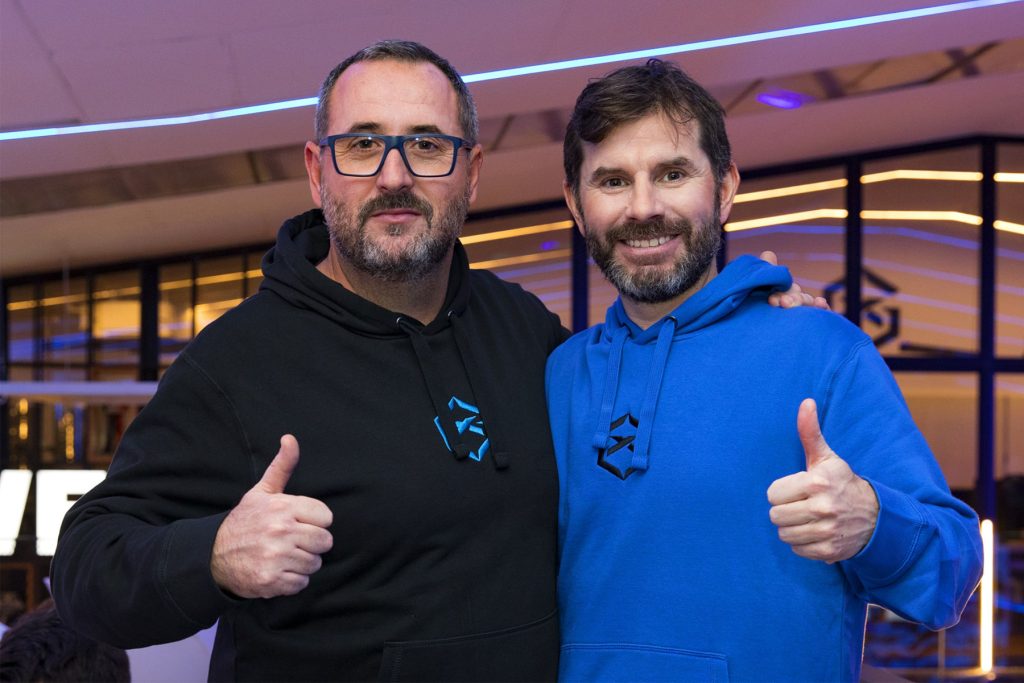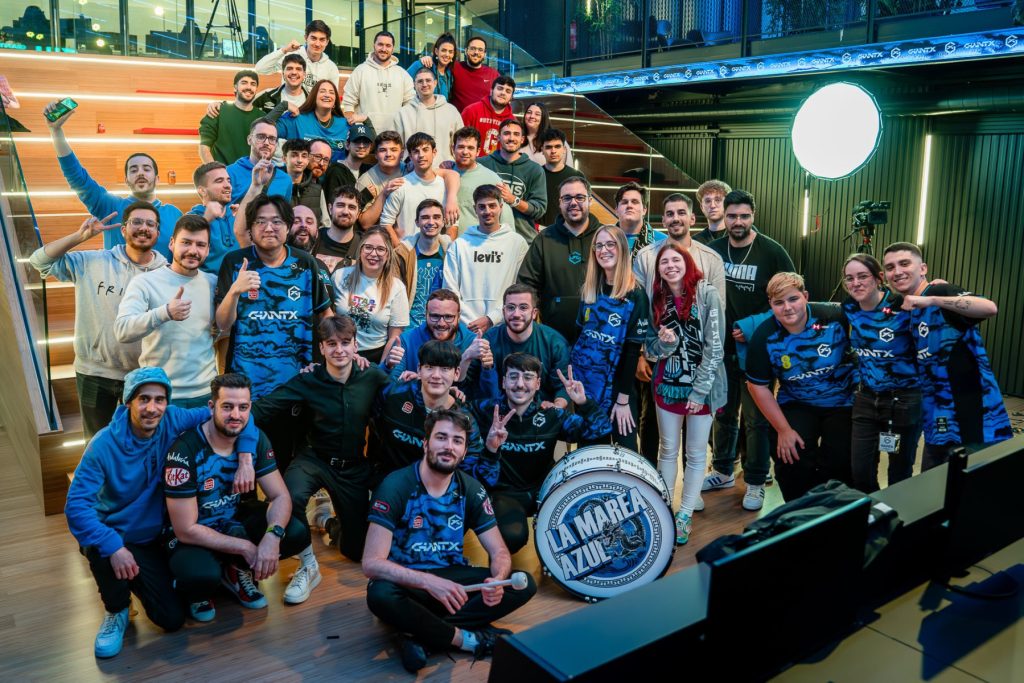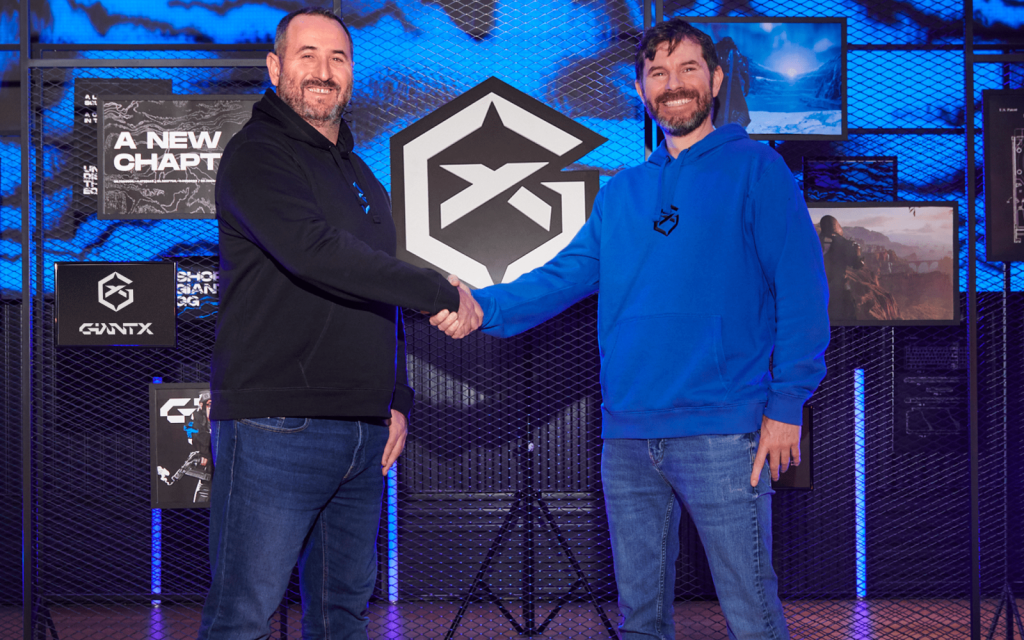
From the outside looking in, EXCEL Esports and Giants Gaming were well-established names in esports, but both desired more competitive success.
EXCEL, freshly rebranded and headed by Tim Reichert, struggled to find consistently impressive results in League of Legends’ LEC. Giants, albeit very popular in their home region of Spain, desired a stronger foothold in the European scene and VALORANT’s VCT, another one of Riot Games’ partner leagues.
This is the story of how the merger between EXCEL and Giant Gaming played out, and how the newly formed GIANTX looks today.
Joining Esports Insider on this journey are the two men at the helm of the new GIANTX ship: Jose Diaz and Tim Reichert, the organisation’s current Co-CEOs and former CEOs of Giants Gaming and EXCEL, respectively. After just over half a year of consolidation, Reichert noted that things are looking “better than expected”, but challenges were always expected.
“Jose and I, we are not young people anymore and we know how mergers usually work, and that they’re mostly horrible experiences,” said Reichert.
“I think we managed it pretty well and today we see ourselves as a Pan-European organisation with a strong legacy and foothold in Spain and the UK. We still have a lot of challenges, a lot of work and a lot of areas we need to improve, but this is much better than we had hoped for.”
The merger between the two organisations was officially finalised in late 2023, after several months of talks and discussions. However, what exactly drew these two companies together in the first place?
Diaz explained that Giants were initially in the market to secure investments to perhaps expand into the LEC, an idea the company had been exploring for a while. Sometime around February or March 2023, Diaz and Reichert were using messaging app WhatsApp to talk about something completely different and at the same time, the idea of the merger was discussed.
“In the end, Tim [Reichert] said to me that they [EXCEL] have LEC, we had VCT and, at the time, I think this was something they were looking for with their strategy. It was also something that we contemplated in our strategies,” said Diaz.
“Of course, we had many discussions, many meetings about it and in the fourth quarter, we finished everything and announced it in December.”
Reichert added that the timeline of the merger was shorter than what people may think. It took Giants and EXCEL around half a year to make it across the line, mostly due to “a lot of good fits” between the two companies.
“It became, at some point, very easy for us to commit to each other. We didn’t have to do hundreds of talks with different stakeholders or other merger options with other teams,” highlighted Reichert.
“The case here is that we wanted to focus on the one merger we felt was the best fit. First of all, all assets of both companies fit very well together, the game titles we have were a perfect match, and Jose and I already knew each other and had a lot of respect for each other before the merger.”
Reichert concluded that no consulting group worked on the merger and that everything came into place very well and organically, making both sides, as they say, “very happy”.

Globalising partnerships
The new entity is now working hard on globalising its brand and becoming known as a single company in multiple markets. Diaz explained that prior to the merger, Giants Gaming had a mostly Spanish fanbase and most EXCEL fans were in the UK. Under GIANTX the goal is to connect and expand these communities to make the new brand not as regionally-focused.
This is perhaps a larger challenge for the Spanish side of GIANTX, due to the constant changes in language across all platforms and communication.
The goal is to still connect with the Spanish audience through its dedicated social media channels, but create a more unison approach alongside GIANTX’s English content and marketing. Diaz highlighted that all efforts possible are being used so that the fans still feel connected to the brand despite the new identity.
The structure of the company has not changed significantly since the merger, but the overall number of offices and staff in different countries has increased due to its joint operations in Spain and the UK.
Reichert said that GIANTX has two main offices — one in Malaga, Spain and the other in London — as well as a Performance Center in Berlin, Germany, that focuses on its competitive rosters. In addition, there are sales and marketing teams in Spain and England, as well as a number of remote workers in various countries and locations.
Eagle-eyed fans will be quick to notice that some of the recently-announced GIANTX commercial partnerships such as KitKat or Hot Wheels were focused on Spain instead of being an overarching deal. Diaz added that this is due to some partners ‘coming with them’ after the merger, meaning that these are extensions of deals Giants Gaming made in the past.
On the other side, former EXCEL partner HSBC UK renewed its deal with GIANTX just last month.
In the future, GIANTX aims to explore other revenue streams outside of regional-focused partnerships, due to a lack of scalability this source generally has in esports compared to other revenue opportunities. Diaz explained that a lot of projects are in motion, aimed at making the organisation more scalable and sustainable in the near future.
Reichert added: “If you think about professional football, if you’re a partner of Real Madrid or Barcelona, you can’t limit yourself to Spanish budgets because that’s not good for the brand, they are visible everywhere.
“This is why brands will learn more and more about what a local budget is and what a global budget is. And the reality is, esports teams usually always offer global visibility even if they have a very specific or targeted audience. Still, most of your visibility is seen in the rest of the world, because you don’t have a stadium.”
Working with brands on scaling up their budgets will be a daunting task for GIANTX, but looking towards more global projects is one of the few ways to bring stability to the company.

Esports is “just a baby”
Another interesting segment of this merger is the fact that it happened at the dawn of the so-called ‘esports winter’, a period during which many esports companies laid off hundreds of employees.
For the freshly-merged GIANTX, layoffs also happened due to the overlap of roles across two companies, but more significant layoffs did not take place in 2024, according to the two CEOs. Diaz and Reichert pointed out that GIANTX now has around 55 employees, not including the players.
Commenting on the current trend of mergers in the esports industry, Diaz said that, in the grand scheme of things, the industry is “just a baby” and that he feels like everyone in the industry is too focused on “big numbers”.
He added: “Money is sometimes complicated. If you put in money, you want more money, right? You need to be very patient in this industry. I’ve been here for 15 years and I can say that I saw a lot of teams open and close. People come, put money in and leave. Mergers are something normal and logical, it’s just the challenge to find the right partner. At the same time, it’s logical that many companies close, because this is something that happens in every industry.”
Reichert added that he feels like the industry, which is incredibly fast-changing, is actually in a good place now. At the time, many predicted that gaming would be one of the core elements of the new generation and that its popularity would soar. That did happen, and according to Reichert, every new generation will be even more interested in gaming.
What did change in the last several years, however, is that investors, team owners and other stakeholders realised that the growth of esports is much slower than what was predicted. Esports’ growth potential is still there, according to Reichert, but the speed is sadly not what the industry had hoped before the pandemic.
Other challenges Diaz and Reichert pointed out are the organisation’s performance in tournaments and staying relevant in a still crowded ecosystem. This means that GIANTX needs to be strong in the competitions it enters, namely LEC and VCT.
In LEC Spring 2024, GIANTX finished the campaign in seventh place. Meanwhile, its VCT division suffered an early exit in EMEA Stage 1 Group Stage, recording a 1-4 record.
Reichert said: “The biggest challenge is to be competitively successful, and it’s not like the biggest challenge has changed. It’s always the biggest challenge for every team — you need to be reasonable with your spending but you need, and you want, to be successful. You need to hold the trophy to qualify for global events.”
For GIANTX, the company’s main goal for the rest of the year is to keep consolidating, streamlining operations, and getting used to the new structure. Content, partnerships, and competitive results are the focus for 2024.
